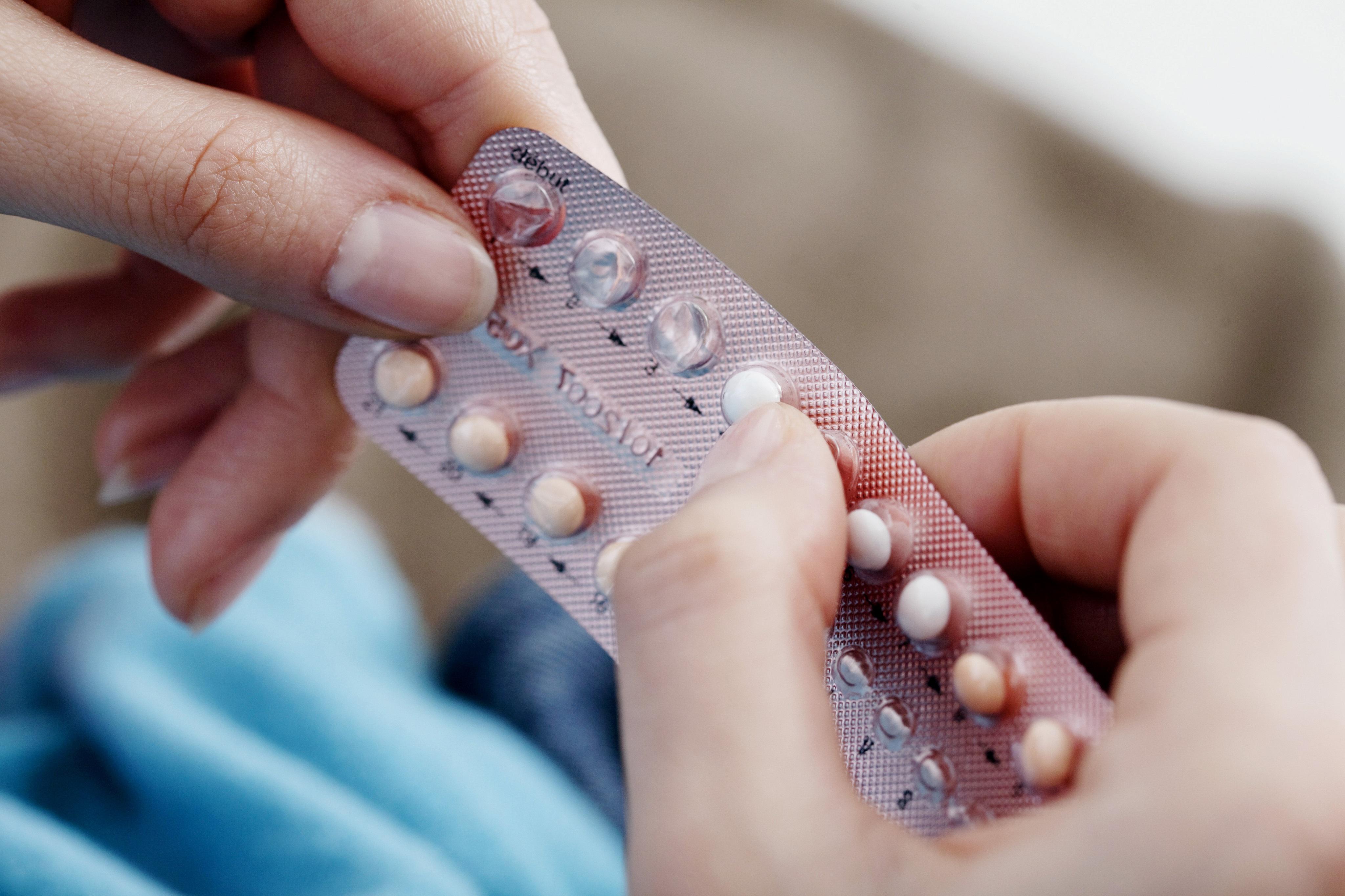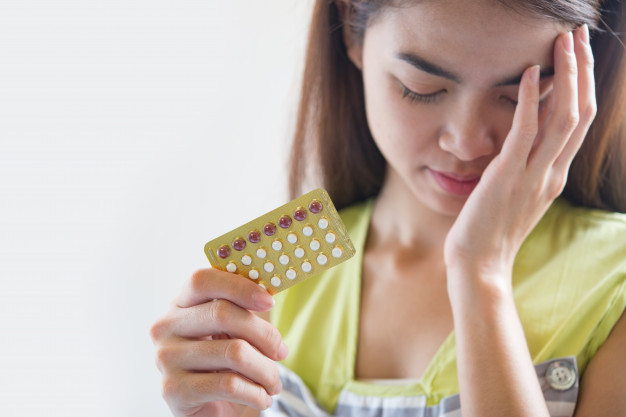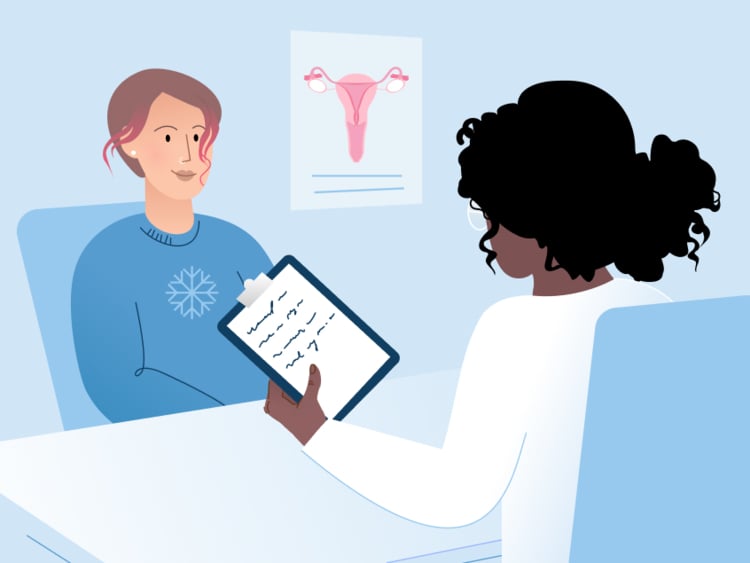In India, Young Adults Consume More Emergency Contraceptive Pills Than Condoms

The first time R.G. engaged in sexual activity with a boy from her class, they did not use a condom. Instead, the boy suggested she take an emergency contraceptive pills, more commonly known as the morning-after pill, which she did, though it was not without difficulties.
Manvi narrates that she took her first emergency contraceptive pill at age 19 when her then-boyfriend wanted to be “properly intimate” and urged her to “just take a pill and get over it.”
“He persuaded me that sex feels best without a condom, and I, wanting to please him, agreed…,” she explains, adding that he would often “forget” to buy condoms and tell her, “if anything goes wrong, your reputation will be at risk, so it’s better if you just take a pill.” Consequently, “we continued having consensual sex, sometimes with condoms, sometimes without, but always relying on the i-Pill,” she says.
She confesses that she was unaware of its side effects for a long time until she started noticing disruptions in her menstrual cycles, facial acne breakouts, and unusual bloating.
Shivangi also had a similar experience with her ex-boyfriend when she was 19. He wanted to have unprotected sex and claimed that if not doing so would “ultimately add to dissatisfactions” in their relationship.
The pattern here is clear—no use of condoms (lack of responsibility from the male partner), while the responsibility of not only “pleasing” but also managing the “risk of pregnancy” and dealing with the “aftermath” clearly falls on the female partner.
However, the issue extends beyond the surge in i-pill use, irresponsibility, and lack of knowledge. It also reflects a significant change in lifestyle, attitudes, and sexual dynamics among young adults in the country today.
Indian traditional norms emphasize maintaining sexual abstinence before marriage. Yet, over the past three decades, a growing body of literature has provided corroborating evidence of increasing permissiveness and involvement in premarital sex among the youth.
In India, research attention on youth sexual behaviour has grown considerably in recent years. Several small and large-scale studies, including the recent National Family Health Survey and the National Behavioural Surveillance Survey, have explored the premarital sexual behaviour of young people.
What these studies indicated is that despite socio-cultural taboos, youth in India do engage in premarital sex. For many young people, premarital sexual experiences involve multiple partners, lack of contraception or condom use, and, for young women, instances of coercion.
If framed in stark numbers, parents might be shocked: according to a survey conducted by a leading daily, three out of 10 students in Class X have had sex.
It is not surprising, then, that 46 per cent of teens have seen discarded condom packs in schools or on college campuses, and 25 per cent know a teen who got pregnant. In comparison, an earlier sex survey revealed that only one out of 10 had encountered sex at that age.
The age of first sexual experience is now around 15-16 years. In the first sex survey conducted in 2004, respondents mentioned 18-26 years as their age of first sex.
Unlike previous generations, teens now have unlimited access to the internet: about 26 per cent send or receive sexually explicit messages, 46 per cent watch pornography online, and six per cent have had sex with social network friends.
 Not An Urban Phenomenon Alone
Not An Urban Phenomenon Alone
Studies have shown that adolescent sexual behaviour is prevalent in rural central India as well.
According to research by Maan et al., approximately 15% of adolescents in rural central India reported having sexual experiences. Another study found an even higher prevalence, with over 30% of respondents indicating they had engaged in sexual activity.
The prevalence of early sexual debut (before 18 years of age) is also significant in rural central India, with reports indicating that over 50% of adolescents had engaged in sexual activity before turning 18.
Use of Emergency Contraceptive Pills vs. Use of Condoms
It was three years ago, and for the first time that A.G., 24, took the emergency contraceptive pill; she recalls that she was in a state of panic and regretted not researching the side effects before.
“What followed was a period of irresponsible consumption of the pill for about a year until I ended up miserable and still unaware of the cause… while the goal was to not end up pregnant, and I had no idea I’d end up with suicidal ideation instead,” she recalls.
While there was a significant impact on her mental health, the frequent use of emergency contraceptive pills ended up making her periods heavy, painful and highly irregular.
An emergency contraceptive pill, or the “morning-after pill,” helps prevent pregnancy after unprotected sex or the failure of other forms of contraception, such as a missed daily hormonal pill or a condom tearing.
Essentially, it serves as a “backup” protection; hence, it is called Plan B in the United States.
In India, the pills became available over-the-counter in 2005, meaning they no longer required a prescription and since, for many young adult women like R.G., they have become the most preferred method of contraception.
In fact, surprisingly, India is the third-largest market for morning-after pills in the world.
The current status of emergency contraceptive pill (ECP) sales from the retail market is revealing.
A shop audit report by AC Nielsen ORG MARG shows that ECP sales have increased almost fourfold in the last five years, in 2008 from 4.9 million to 16.4 million in 2013, as illustrated in Figure 1 below.

Seventy-one per cent of total sales occur in urban areas, which comprise only 29.8 per cent of the national population. The 18 large metro cities contribute 29 per cent of the total sales, with Delhi NCR alone accounting for 8.6 per cent, followed by Mumbai and Kolkata. In Chennai, ECP sales are negligible because ECP sales in Tamil Nadu are banned.
However, access to ECPs is low in smaller towns and rural areas.
For M, at 18, emergency contraception seemed like the more accessible alternative since she couldn’t talk to her mother about going on birth control pills.
On the other hand, S notes that misinformation about regular birth control pills, which many believe can cause infertility, leads people to choose emergency contraceptive pills. They often do not realize that a morning-after pill has the same hormone as an everyday pill, in fact, in a much higher dose.
In contrast, while it might be difficult for people to access birth control pills, on the other hand, condoms are well and widely advertised, are readily available, and, unlike both birth control and morning-after pills, also protect against STIs.
So why do women continue to use emergency contraceptives?
The answer probably lies in patriarchy and the entitlement that enables men to experience pleasure without any “barriers.”
This entitled expectation of having unprotected sex persists even though a National Family Health Survey in 2014-15 showed that almost 97.9% of sexually active men in India understand the importance of using condoms.
 The Rise of the Pill
The Rise of the Pill
According to a recent study published in The Lancet, around 15.6 million abortions took place in India in 2015. Three-fourths of these abortions were carried out using drugs purchased over the counter rather than through health facilities.
Women often consume the pill as a safety measure and without adequate counselling.
Data compiled by the Population Council of India in 2015 highlights that urban areas contribute to 71 per cent of the total sales of emergency contraceptive pills in India.
Since the pill is easily available, most women prefer to rely on it rather than undergoing medical procedures for abortion.
Additionally, taking a pill is cheap and involves fewer people compared to a full-fledged medical abortion. While the pill is easily accessible, attention must be given to its side effects as well.
The pill might be the preferred option for young women, but it has many consequences.
Regular consumption of the pill can result in hormonal changes, nausea, herpes, vomiting, weakness, and menstrual changes.
Additionally, a study conducted by the University of Copenhagen highlighted that women dependent on contraceptive pills have almost a 20 per cent risk of developing breast cancer.
The surge in the use of pills in India clearly indicates that private manufacturers are selling ECPs to alleviate women’s anxiety about unintended pregnancy at the cost of their health.
This general misinformation about emergency contraceptive pills often leads people to use them as a preventive measure even when there isn’t a great risk of pregnancy, thinking it is harmless and could save them from the trouble of dealing with an unwanted pregnancy.
Dr. Narendra mentions encountering people who decide to take the morning-after pill unnecessarily, giving an example of how two different people texted him to ask if they should take two emergency contraceptive pills to be extra safe, adding that doing so would have worsened the side effects.
She states that there may be countless others who may never have consulted medical professionals and taken multiple pills in a moment of panic.
And perhaps that is what serves at the core of the popularity of morning-after pill’s – it serves as a failsafe and buys people their “peace of mind.”
Additionally, the pill allows several young couples to have premarital sex without considering the consequences. In this process, the burden of contraception falls on the women who are taking these pills and risking their health.
 Advertising to Blame
Advertising to Blame
What also contributes to the morning-after pills as the go-to option for young women and “pushed” by young men is the ubiquitous advertising of these pills.
These advertisements “will just show you a frolicking heterosexual couple” without informing the target audience about any potential side effects, says Dr. Narendra, pointing that’s what is driving young women toward emergency contraceptive pills.
Dr Indira Ganeshan, a Delhi-based gynaecologist, notes, “Advertisements make people believe that morning-after pills are an “easy” and a “safe” way of dealing with unplanned intercourse, and most women are not fully aware that they have side effects.
Experts believe that while these advertisements may make women aware of readily available access to an option that allows them to control over their own bodies, the onus falls on the governments and policymakers who must make people aware of the risks that come with it, so they can take their decision in an informed manner.
One option is requiring pharmaceutical companies selling these products—and generating multi-crore revenues—to educate consumers about side effects through their ads.
Jagriti Gangopadhyay, an assistant professor of sociology at Manipal University, wrote in 2018 that in india the rise of the pill clearly indicates that private manufacturers are selling emergency contraceptive pills to free women from the anxiety of unintended pregnancy but at the cost of their health.
Despite the side effects of the pill, 79 countries across the world have not regulated its sale. In countries like the US, Austria, Bulgaria, Cyprus, Ireland, Spain, and Switzerland, the pill can be bought over the counter without any form of medical prescription.
In fact, even the World Health Organization (WHO) does not discourage the use of the pill.
Only a few countries have noted the aftereffects of the pill and have drafted regulations regarding its sale and availability. For instance, in Hungary, the ECP is available only in pharmacies and sold only with formal medical prescriptions.
Similarly, in Germany and South Korea, the pill can only be purchased with a doctor’s prescription. But, in many South Asian countries like Bangladesh, Pakistan, and Sri Lanka, the pill is sold over the counter.
The lack of regulations for the pill in most countries highlights that the side effects of the pill are hardly debated.
 The Massive Health Cost
The Massive Health Cost
Many doctors show concerns over the indiscriminate use of these pills as substitutes for regular contraceptives instead of being used only for emergencies, as they are supposed to be.
According to doctors, irrespective that these pills may not have any long-term side effects, however, can be damaging by themselves in the short-term.
Apart from disrupting menstrual cycles, emergency contraceptive pills can cause abdominal pain, fatigue, headaches, breast tenderness, and vaginal spotting or bleeding—side effects that people often either don’t know about or don’t prepare for.
Thus, in India, the lack of education about sex and many different contraceptive methods often means people are not making an informed choice when taking morning-after pills.
G.M., now 20, experienced a completely disrupted menstrual cycle due to using morning after pills almost two times a month when she was 18. Additionally, she was unaware that emergency contraceptive pills do nothing to prevent sexually transmitted infections (STIs). “My doctor was so angry when I told her that I used so many pills in one year,” she says.
The lack of sex education also leads to ignorance about the pill’s effectiveness.
Emergency contraceptive pills have a 10-25% failure rate compared to regular-use birth control pills, which have an effectiveness rate of 99.7%, and IUDs, which have a failure rate between 0.2% to 0.8%. Male condoms, which are easily available, have an effectiveness rate of 98% against pregnancies.
Further, emergency contraceptive pills can make people more vulnerable to unplanned pregnancies due to disrupted menstrual cycles.
As Dr. Narendra explains, “[It] can throw off people’s calculations about when they’re in their fertile period… that’s one of the obvious risks that comes with using the pill.”
Likewise, Karishma Swarup, a sexuality educator, believes one of the main reasons people choose the morning-after pill over other contraceptive methods—sometimes to the extent of popping one each time they have sex—is easy access.
“Simply going into a shop and buying a pill is a lot less scary than having to consult a doctor to get on long-term birth control. It’s easy; it’s quick,” she says.
Even if someone decides to get on birth control pills, one of the biggest challenges they face is finding a non-judgmental medical practitioner who can provide appropriate advice, notes Dr. Narendra. “Access to sex-positive doctors—someone who can counsel you about your contraception options—is very limited in India.”
Essentially, while morning-after pills provide a good backup alternative, their use in non-emergency situations can significantly harm women’s physical and mental health.
“Access to emergency contraception was a feminist revolution in every way… but it’s becoming a means to control us now,” Dr. Narendra notes.
The Way Forward
The Indian government should take note of the rising concerns of women depending on emergency contraceptive pills and experiencing health issues.
Immediate intervention is necessary, with the establishment of counselling centres staffed by trained medical experts who can educate both men and women entering sexual relationships about the side effects of these pills.
Regulation of pill sales is crucial, and sex education should be made mandatory in all schools. The need for open discussions about sex is increasingly important in India, where women and young girls often feel pressured to take emergency contraceptive pills due to societal influences.
Both men and women should equally share responsibility for contraception, and women should not bear the sole burden of managing contraception.
However, government regulations must be carefully formulated. For example, the complete ban on emergency contraceptive pills in Tamil Nadu led to an increase in unplanned pregnancies and abortions, indicating that a blanket ban is not a viable solution.
Instead, the government should mandate that these pills be sold only with a medical prescription and require manufacturing companies to advertise them as such. Medical practitioners prescribing these pills should also inform patients about their side effects.
Additionally, while there is ample advertisement highlighting the benefits of these pills, the government should equally use media outlets to create awareness about their potential negative effects.
This approach will empower patients to make informed choices. Ignoring the consequences of emergency contraceptive pills risks the lives of many women, making it crucial for the WHO to establish global regulations addressing these side effects.




